Changing the World: Adventures at the Global Entrepreneurship Summit
When Alexandra Seda, a University Innovation Fellow at Ohio Northern University, co-facilitated a workshop during Stanford University’s Global Entrepreneurship Summit, she met passionate changemakers from around the world. Here, she shares stories of five female entrepreneurs as well as her own journey of transformation.
Applications for the University Innovation Fellows program are due October 31, 2016.
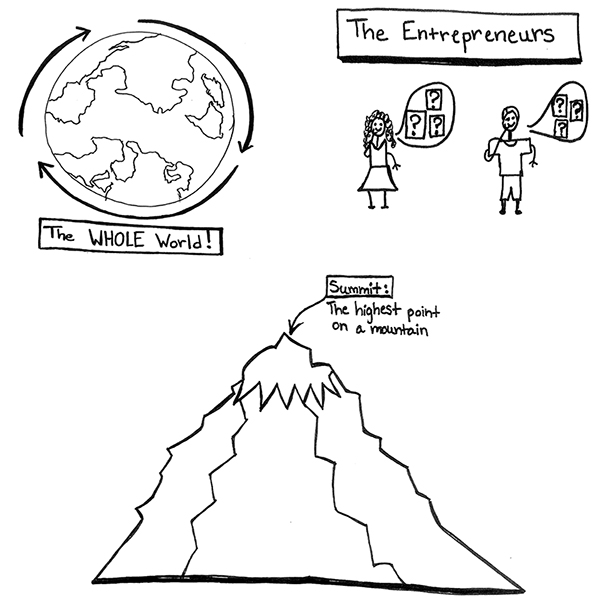 by Alexandra Seda
by Alexandra Seda
A globe, a mountain, and creative people. What do they have in common? They’re what came to mind when I first heard about the Global Entrepreneurship Summit (GES). In June, I traversed to the West Coast to be one of nine University Innovation Fellows to co-facilitate the “Hack Your Creative Culture with Stanford d.school and Google” workshop, which was a partner event of GES. There, as students, we had the opportunity to share the steps we took to ignite change on our university campuses. The workshop was important because the process that my peers and I practiced to activate change on campus would be shared with entrepreneurs from all over the world.
Having the opportunity to possibly help a million people by teaching one person was a rewarding experience. Our willing participants were entrepreneurs who were hand selected to attend the 7th Annual Global Entrepreneurship Summit in Silicon Valley. We shared with them our methods to ignite change via the avenues of person, place, process, and passion. In return, they enriched us with their perspective.
“How do we enact change?” was a question my student peers and I sought to answer in helping to create an ecosystem of innovative and entrepreneurial opportunities for fellow students on our campus. A key to our success in engaging students at Ohio Northern University was recognizing the importance of environment. It is the foundational piece in adopting a culture where students can be creative inside and outside the classroom, which results in incredibly empowering outcomes. We recognized that our environment was not inspiring our students to think outside of the box or ask probing questions.
The University Innovation Fellows (UIF) program invited me to share a presentation on the processes we practiced on ONU’s campus in order to ignite change. We discovered that great moments of change are supported by processes that have an objective and engage participants each step of the way. The origins of these great moments are what often take “what is” and create the path to “what could be.”
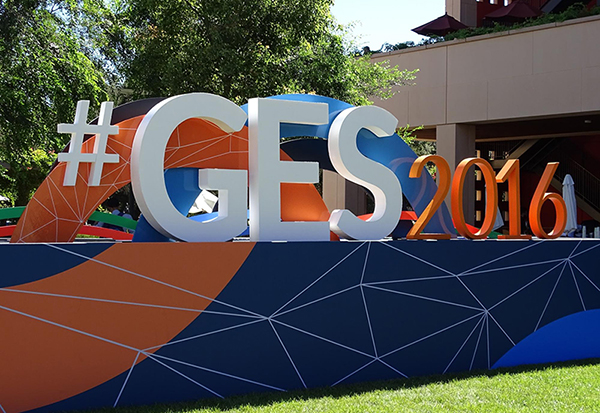
The GES participants chosen were selected from more than 5,000 entrepreneurs from across the world who submitted applications. The selected participants represented 170 countries and territories. They came from various parts of the globe, from Madagascar to Slovakia, to do one thing: connect. The power of connecting with different people is receiving the benefit of different perspectives, networks and insights. The GES event matters because when entrepreneurs from various parts of the world connect with one another, they will become better at solving problems and generating solutions to help larger groups of people at a larger scale and faster pace.
During the “Hack Your Creative Culture” workshop, Fellows shared ways in which they have helped shape or influence the education of their campuses by connecting with people, transforming places, enacting processes, and discovering passions/purposes. There is no one way to enact change; individuals must pave their own paths according to the needs of their respective communities.
That day, the University Innovation Fellows created their own portals to travel through in order to understand the perspectives of the people around them, define the needs, brainstorm ideas, test and enact solutions. The definition of “portal” is a doorway or gateway. In the same way as Fellows, the entrepreneurs at the GES event formed their own individual portals in their communities to tackle problems, form solutions, and scale the solution to the size of need. While the “whys” of their stories are all different for all entrepreneurs, their stories share the power of connecting with others through portals.
Portals are exciting. Often these gateways to “wow” solutions that seem to do the impossible can feel out of reach for us, but when we hear the story of the person behind the portal, suddenly the experiences that lie ahead of the portal seem possible for all.
During my high school years, I seriously wondered if I would ever have the opportunity to serve others in a large way. That wonder turned into a belief in my heart that I had something to give to the people around me. I had an understanding of my responsibility to help others. I knew that my creativity was a skill worth developing further in order to do the most that I possibly could for others with the life that I was given. This belief is what spurred me to take a portal from Alabama to Ohio Northern University (ONU) to pursue engineering. And it was at ONU where I connected with incredible professors who pushed me to challenge myself in achieving more than I ever thought I would have by entering the UIF program. My life was forever changed once again, and through UIF, I was pushed to portal again to the Global Entrepreneurship Summit to share my insights of enacting process for change with entrepreneurs from all over the world.
We’re going to step through a few example portals from different participants to learn their perspectives, light bulb moments and advice for college students.
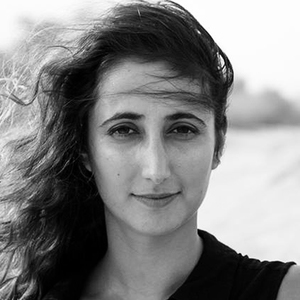
Michelle Moghtader
And now we travel to portal number one. Michelle Moghtader, a former journalist based in the Middle East, discovered a gap between countries. She noticed that each time she traveled to the two portals, Iran and the U.S., people would always ask questions about what the other portal was like. Michelle, passionate about storytelling, was impassioned to fill in the gaps that the news would often leave out about what life was like in different parts of the world. She co-founded Shared Studios, a multi-disciplinary arts, design, and technology collective. Through Shared Studios, literal portals were created: a global network of interconnected golden shipping containers.
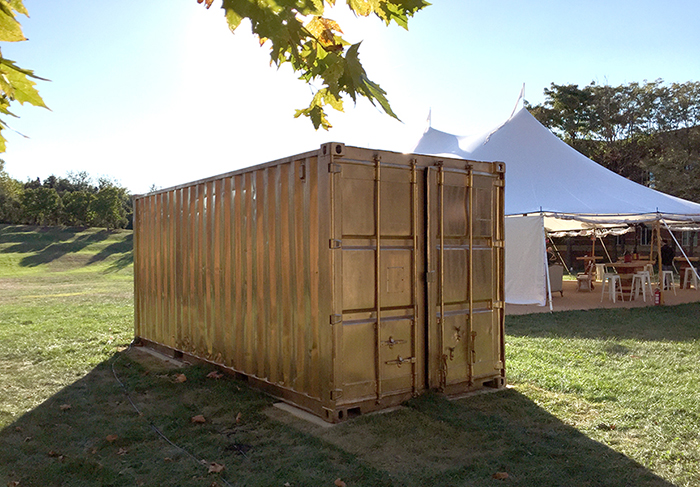
The golden shipping containers are equipped with audio and video technology so that when individuals enter one, they are face-to-face and have the ability to communicate with someone else in a portal from another part of the world. The experiences that people in these portals have are unforgettable and eye opening, because individuals are physically going out of their way to connect with someone worlds away.
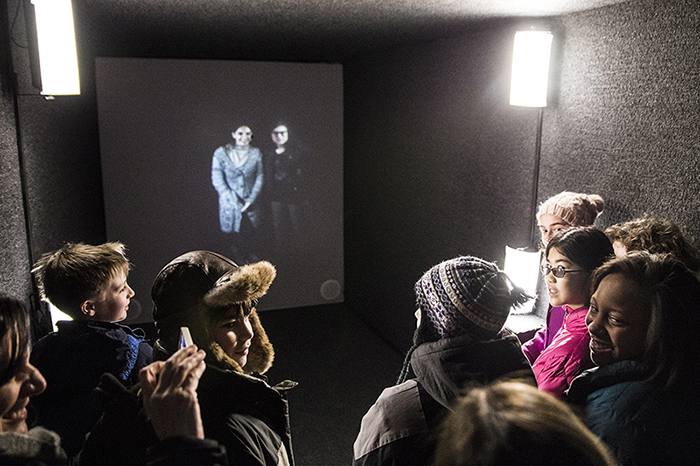

“People come to events like this [GES] to connect with people they wouldn’t normally connect with in their day to day lives” – Michelle Moghtader
 Light Bulb Moment: Entrepreneurs are intentional about connecting with people who are different from them or that know something they do not know.
Light Bulb Moment: Entrepreneurs are intentional about connecting with people who are different from them or that know something they do not know.
Michelle’s advice to college students: “Try to have as many diverse experiences, take as many diverse classes that you can. You got to get out of your comfort zone, and definitely set aside time to ask probing questions.”
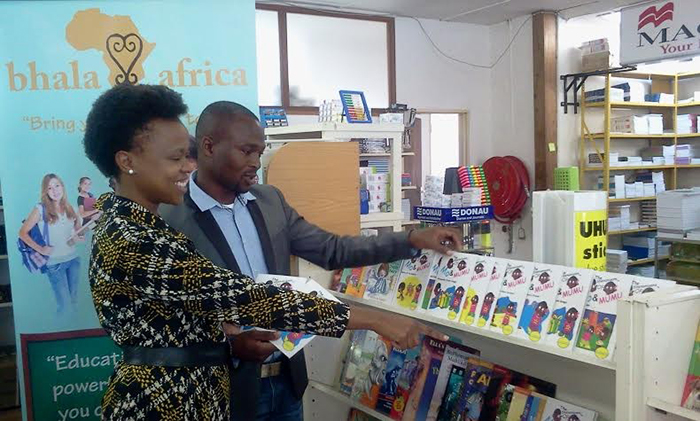
Sindi Ntombini
Portal number two brings us to Swaziland, Africa, to meet Sindi Ntombini, who understood and experienced the need of the people of her homeland. Sindi recognized that many of the books provided through the African school systems were largely written about life in every part of the world but Africa. She recognized the impact that not having Afrocentric children’s reading and learning materials could have on her daughter’s identity and self-esteem, as well as imagined a whole continent of children possibly being negatively impacted the same way.
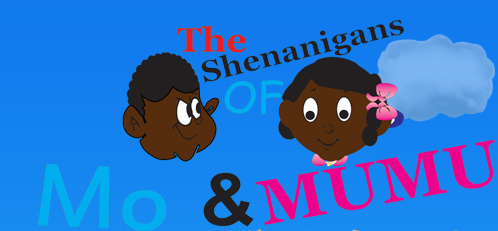
Sindi said, “Our mother would fall and rise again just to make sure we got an education. Our mom gave us a beautiful gift. That beautiful gift was education. I really, really believe that education is a gateway to everything. But how can you access education if you can’t read, if you need to read to learn, to read instructions?”
Equipped with their strongest assets of compassion and determination, Sindi and her sister founded Bhala Africa Publishing, a largely self-funded for-profit social entrepreneurship publishing company which writes and develops Afrocentric Children’s reading and learning material. Bhala Africa’s current series: “The Shenanigans of Mo & Mumu” is a 30-book series written in the Swazi language. Sindi’s focus is that children in Africa believe in their power to “write your own destiny, overwrite those disparities that exist.” Her mantra is, “Bhala Africa, Bhala Africa” which translates to “Write Africa, Write Africa.”
 Light Bulb Moment: Entrepreneurs are driven to make available the solutions they create with communities big and small. When entrepreneurs tackle problems, they have the ability to see the “one,” while at the same time being able to see the “many” in need, and gleaning any necessary insight essential to making things happen.
Light Bulb Moment: Entrepreneurs are driven to make available the solutions they create with communities big and small. When entrepreneurs tackle problems, they have the ability to see the “one,” while at the same time being able to see the “many” in need, and gleaning any necessary insight essential to making things happen.
Sindi’s advice to college students thinking about or starting an entrepreneurial venture: “You have to have staying power. If you have staying power then you will be able to stick to the course that you believe in, that you started. It shouldn’t be that you are looking at an end, where it’s like, ‘this is how much I anticipate my company to be worth at the end so that I can sell it.’ Do it for the right reasons and that way it will give you staying power.”
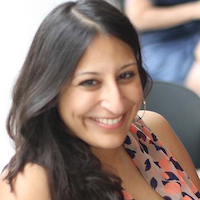
Kalsoom Lakhhani
Away we go to portal number three, which brings us to Pakistan! Here we meet Kalsoom Lakhhani. She worked in philanthropy and was a former news blogger.
She realized that Pakistan had a negative perception in the news. She would blog about the untold stories left out by the news from interviews she had with filmmakers, artists, and changemakers, essentially people on the ground doing really cool things. When she would encounter the same people she had interviewed with those great ideas again a few months later, she discovered that many of those ideas hadn’t taken off because there were no mentors, no investors, and siloed environments. She realized that internationally, when people would look to invest, they would overlook the hard environments, where the potential was still really high. She wanted to create and provide a solution in places where there was not one. She decided to pave a new path, and so she founded Invest2Innovate.

Based out of Pakistan, Invest2Innovate identifies early stage entrepreneurs, provides business support through their accelerator program, and maintains an Angel network that matches entrepreneurs with seed funding. They support startup communities in growth markets.
“Genius and innovation exist all over the world, not just in the places that you expect it.”-Kulsum Lahkhani
The mission of Invest2Innovate is to create and help startup communities flourish in places where people would least expect, the high potential areas with a lot of growth yet to go. And while they support the startup communities, they also seek ways to support the environments that surround the startup communities.
 Light Bulb Moment: Entrepreneurs have the ability to see potential in people, places, products, and things before others do. The factors that predicate whether an entrepreneur sees a venture worth pursuing are factors that are measured by an unrecognized/unspoken need, experiential knowledge, and a willingness to experiment with no guarantee of reward.
Light Bulb Moment: Entrepreneurs have the ability to see potential in people, places, products, and things before others do. The factors that predicate whether an entrepreneur sees a venture worth pursuing are factors that are measured by an unrecognized/unspoken need, experiential knowledge, and a willingness to experiment with no guarantee of reward.
Kalsoom Lakhani’s advice to college students: “A lot of young people in college that I meet feel like they have to conquer the world today, and it doesn’t have to be today. When you go out and have all those really diverse experiences that kind of create an amazing texture to whatever you will bring when you do decide to start your own company.” “We didn’t have direct paths to where we are today.” “Relax, just have fun, and be young.”

Nokwanda Thulile Mathenjwa
Portal number four takes us to Sandton, Africa, where we meet Nokwanda Thulile Mathenjwa. Nokwanda noticed that she had many clothes, purses, and other accessories in her closet that were collecting dust or space because she had either worn/used the items once, twice, or never. She realized that though these items no longer matched her current style tastes, the items might still be relevant for someone else’s fashion tastes. Nokwanda solved her own personal need and believed that the solution could scale to the market, and so she created Yamilet SA.
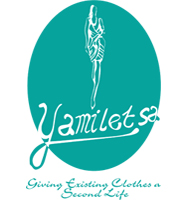
Yamilet SA is a retailer that buys and sells pre-loved clothing and accessories. Yamilet SA’s website states that they are the “retail unicorn that allows customers to find a treasure, protect the environment, and save money.” Nokwanda’s focus is to provide a refreshing shopping experience where buyers and sellers alike can benefit economically while also helping to save the environment from manufacturing wastes that would have occurred had new clothing and accessory items been produced.
 Light bulb Moment: Entrepreneurs can solve their own personal needs and scale the solutions to the market if they know that the solution is entering an unsaturated market. This can lead to disruptive innovation by creating an offering that was not previously thought of or made available.
Light bulb Moment: Entrepreneurs can solve their own personal needs and scale the solutions to the market if they know that the solution is entering an unsaturated market. This can lead to disruptive innovation by creating an offering that was not previously thought of or made available.
Nokwanda’s (entrepreneurial) advice to college students: “Not to be afraid to fail. When you fail, you can fail well when you learn from your failure because there is always room for improvement. If you are doing everything right all of the time. Okay, well you’re doing something wrong because you are not learning.”

Desayo Ajisegiri
We have now arrived to portal number five in Nigeria to meet Desayo Ajisegiri. In 2007, Desayo contracted malaria, which nearly took her life. When Desayo had the opportunity to study in the U.S., she decided to study medicine where she later uncovered her interest in innovation and in creating solutions that would help combat the serious issue of Malaria.
Desayo switched her major to chemical engineering and began researching methods of repelling mosquitoes. She learned about an effective ingredient that repelled mosquitoes, but realized that the ingredient was inaccessible to the people who needed it most. Desayo formulated a solution that could be incorporated into something the people of Nigeria already used: laundry detergent.

Desayo was successfully able to create a detergent that had a mosquito repellent solution included. The detergent provides clothes with the ability to repel mosquitoes for 14 to 27 days. Her solution was innovative in that it was able to take something that was largely inaccessible and provide a way for the ingredient to be accessible and convenient for the people that would use it daily through the washing of their clothes.
 Light Bulb Moment: Entrepreneurs create solutions that are innovative. By innovative, I mean accessible and useful to the people who will benefit from the product. The ability to create, design, and invest in solutions that don’t change human behavior and seamlessly fit into daily routines is revolutionary.
Light Bulb Moment: Entrepreneurs create solutions that are innovative. By innovative, I mean accessible and useful to the people who will benefit from the product. The ability to create, design, and invest in solutions that don’t change human behavior and seamlessly fit into daily routines is revolutionary.
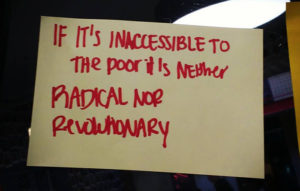
Desayo said, “I was born to give people a reason to live and hope for a future. And so, each time I was faced with any self-doubt or people just stigmatizing me because I’m female or because I tend to be strong and passionate about what I’m doing that is not conventional, I go back to the drawing board and ask ‘Why am I doing this?’ I’m here for a purpose that must be earnestly achieved. I owe the world this solution. I want to re-write this plot. I have dedicated myself to impacting the world through a fusion of entrepreneurial and humanitarian initiatives aimed at solving current universal challenges. With a ‘first principles’ approach, I strive to reduce the global malaria footprint through the creation of a simple and effective solution, focused on minimizing the scourge of the malaria epidemic, particularly in developing countries.”
Desayo’s advice to college students: “Before you step out to do something, you need to know why you are doing what you are doing. Find that irrefutable reason to understand why you are doing what you are doing. The best way to find the ‘why’ is by being interested, open to trying different things.”
The five portals above show how the Global Entrepreneurship Summit is truly important because we are part of a much larger community: planet earth. The more we connect as a group of problem-solvers and changemakers, the better we become at discovering, designing, and testing solutions to scale to the needs of the people around us. We become smarter when we are more informed about perspectives that are not our own. Being on the summit of a mountain is helpful because we have a better vantage point of where we have previously been. The more we learn about others and what’s currently being done, the better we become at creating innovative, life-changing things that people need to go about their daily lives.
After GES, I felt re-energized and encouraged after interacting with all the entrepreneurs I encountered. Each entrepreneur I spoke to was optimistic about the future, and many of them were thinking about ways in which they could play a more active role in improving their communities. Before I truly understood what entrepreneurship was and the people who chose this way of life, I used to go along with the uninformed opinion of the people around me — that entrepreneurs only do what they do for the money. After the interactions I had with the entrepreneurs at GES, I was able to confidently say that what others said about entrepreneurs is simply not true. Entrepreneurs would not be entrepreneurs if they didn’t care about people, because people are the number one reason why they have the opportunity to make, fail, then make again.
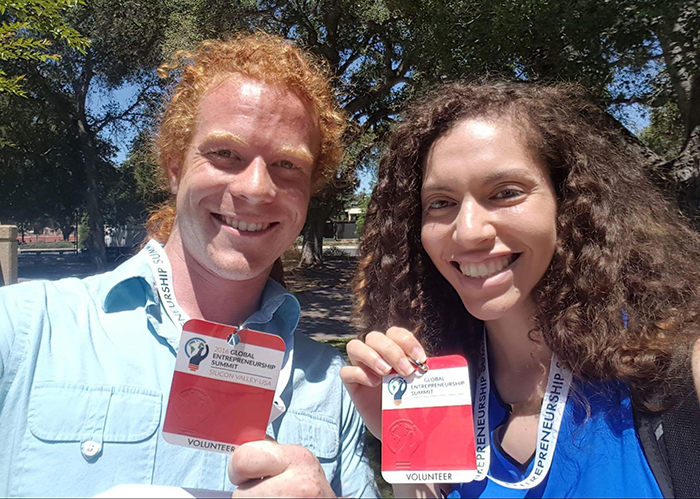
Seda (right) with Gabriel Conners, a University Innovation Fellow and co-facilitator at the GES workshop.
As entrepreneurially minded people active within our communities, we must be vigilant and observe to everything around us. We must be comfortable being in positions that make us experience the need we are trying to fill in order to understand the issues at hand. Otherwise, we only become proficient at forming solutions based on what we think we know.
Additionally, the call to pave a new path will always be for individuals who are observant and ready to answer the need before them. We must never forget to consider our own problems, because our problems might be experienced by others, and they could be waiting for us to scale our personal solutions to the market. Great entrepreneurs are special because they will spend however much time is necessary in order to research what’s available, learn about current solutions, and decide whether a better solution can be formed in order to ensure accessibility for the customers in mind.
How will you portal and positively impact someone’s life today?
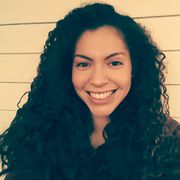 About the author
About the author
Alexandra Seda is an electrical engineering student at Ohio Northern University. She enjoys learning new things, reading and participating in community service oriented opportunities. After graduation, she plans to pursue an MBA at the University of Findlay. Learn more about her work as a University Innovation Fellow »





Awesome Alexandra, thank you 🙂
No problem Nokwanda! It was such a pleasure for Gabe and I to have had the opportunity to interview you and learn about the cool things you are doing to change the world. 🙂